The purpose of wine
is food
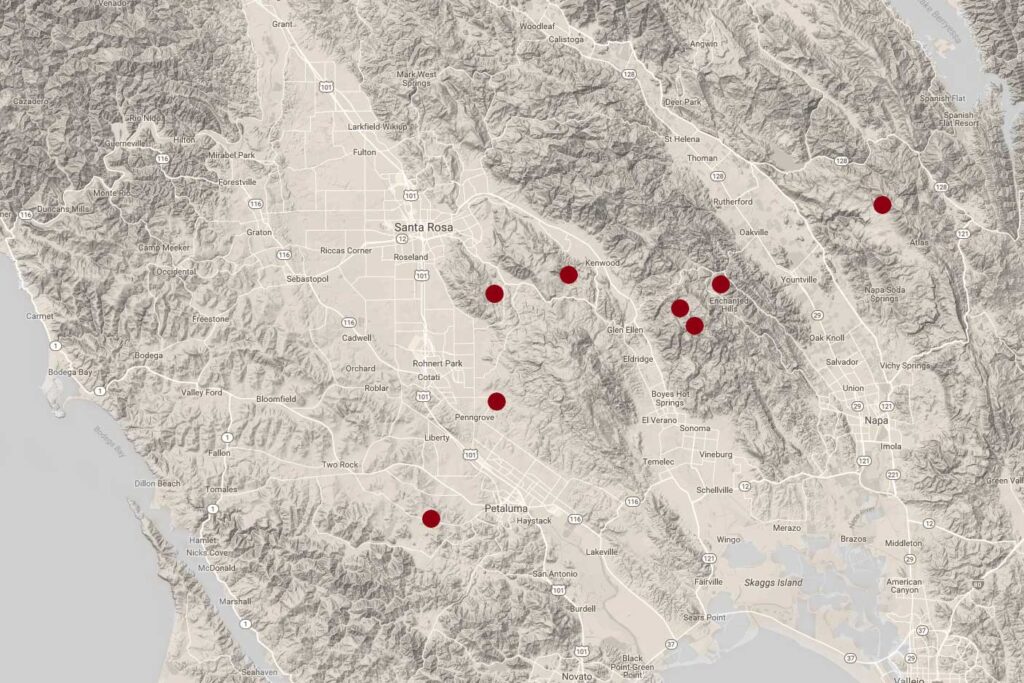
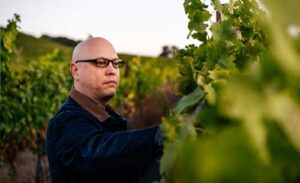
Spring Hill
Pinot Noir
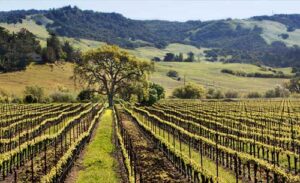
Robert's Road
Pinot Noir

Robert's Road
Pinot Noir
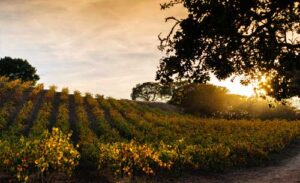
Rossi Ranch
Grenache, Syrah
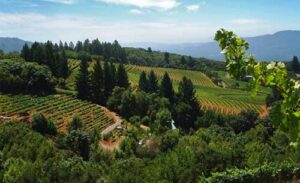
Charlie Smith
Cabernet Sauvignon
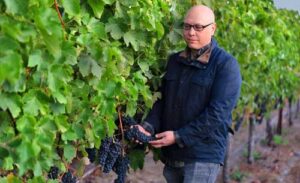
Cavedale
Cabernet, Merlot, Petit Verdot
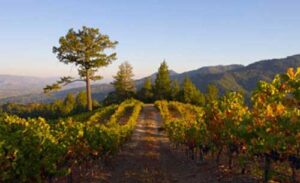
Newton
Cabernet Sauvignon, Merlot
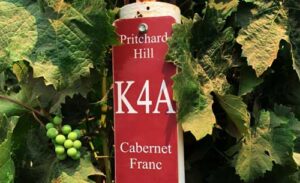
Stagecoach
Cabernet Franc
TO MAKE SOSIE WINES, WE SOURCE FRUIT FROM EIGHT DIFFERENT VINEYARDS. WE CHOSE THESE SITES BECAUSE EACH IS METICULOUSLY FARMED, YIELDING PHYSIOLOGICALLY RIPE, WELL-BALANCED FRUIT THAT REQUIRES FEW IF ANY ADDITIONS IN THE CELLAR.
VIVIO VINEYARD
SYRAH, ROUSSANNE
Sustainably Farmed
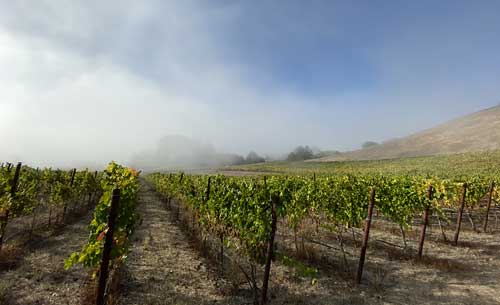
We selected Vivio Vineyards because it has such a strong marine influence. Cool air pours in from three separate directions and settles into the valley’s bowl, which in the summer months turns to heavy fog. Despite the cooling influences, the days can get quite hot. Temperatures can swing 40° to 50° from daytime highs to nighttime lows. As a result, the fruit is very late ripening — sometimes we don’t pick until almost November.
SPRING HILL VINEYARD
PINOT NOIR
Organically Farmed
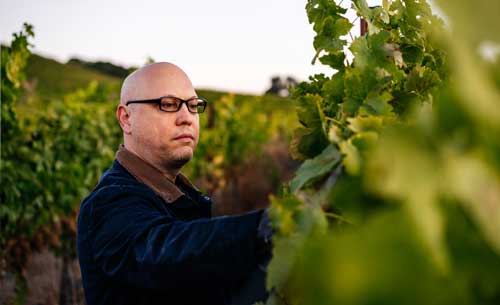
Spring Hill sits on a windblown ridge, seven miles from the ocean at the lowest point in the Coast Range north of the Golden Gate. Viticulturally, it sits in the Petaluma Gap, a conduit for cold air and fog from the Pacific. The berries are quite small and yield is often less than one ton per acre.
Sustainable practices include composting, natural cover crops of Lupine, crimson clover, California poppy and rye, and a parliament of owls that keep the vineyard clear of pesky rodents. While the vineyard is dedicated to Pinot Noir, it does share the ranch with herds of Wagyu and Scottish Highland cattle.
STAGECOACH VINEYARD
CABERNET FRANC
Sustainably Farmed
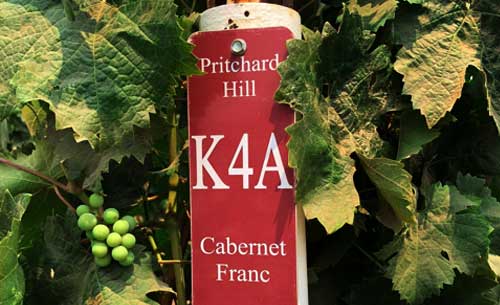
Stagecoach sits at the top of Atlas Peak, straddling the Vaca Mountain range, which separates Napa Valley from Solano County and its many, er, shopping malls. Majestic as the place is, it wasn’t planted until 1991 because there was no water to be found. It took a water witch (part hydrologist, part sorcerer) and a whole lotta dynamite to make the place plant-able. Some two million pounds of rock were blasted to make the vineyard what it is today.
The one defining element of Stagecoach is the soil, which is red, volcanic and loamy. Thanks to the steady breeze that flows up valley from the Bay, the fog arrives early each day and prolongs the growing season each year. Grapes typically reach maturity 10 to 14 days after those on the valley floor have ripened. All the usual mountain characteristics are here – small berries with thick skins, big tannins and extremely complex flavors.
ROSSI RANCH
GRENACHE, SYRAH
CCOF Certified Organic
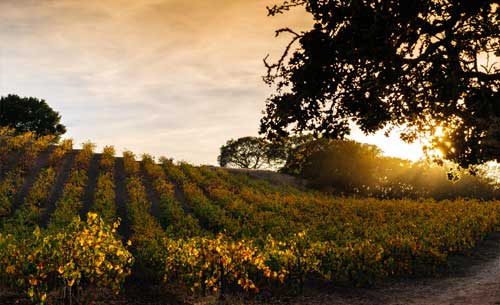
First planted in 1910 by the (Carlo) Rossi family, Rossi Ranch reveals an incredible diversity of old vines of every kind that, at first glance, appear to be haphazardly intermixed. The ranch is farmed by Phil Coturri, the most respected organic viticulturist in the North Bay and a dead ringer for Jerry Garcia.
The clay loam soils are marginal, laced with volcanic ash and obsidian shards. Turns out to be the perfect place to grow Grenache, yielding wines that are perfumed and elegant with loads of strawberry, sage and nutmeg. Syrah also excels here, ripening slowly by mid- to late-October. The berries that come in are are tiny and the wines they produce intense.
ROBERT’S ROAD VINEYARD
PINOT NOIR
Sustainably Farmed
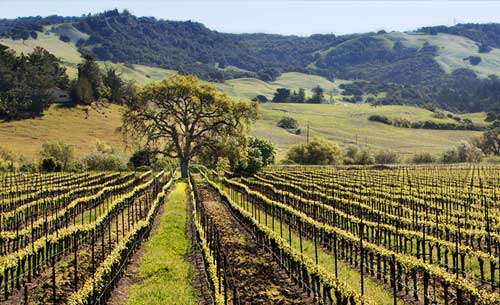
Roberts Road is located at the far northern edge of Sonoma County’s Petaluma Gap. The “Gap” is actually a breach in the coastal mountain range that pulls ocean breezes in from the Pacific, across the southern end of Sonoma, and south to San Pablo Bay. The cool ocean air moderates the abundant sun the vineyard gets from its southwestern exposure, allowing the grapes to mature while retaining the softness Pinot Noir is know for. Roberts Road is our maximalist wine.
CAVEDALE VINEYARD
CABERNET, MERLOT, PETIT VERDOT
Sustainably Farmed
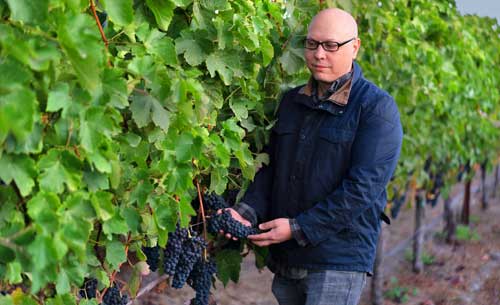
Cavedale Vineyard is named for the road that snakes its way 2,000 feet up Moon Mountain. To call it a road is kind; it’s a crumbling one-lane track that zig-zags its way through scrub oak and pine and crests well above the fog line.
The climate here is defined by near constant Bay breezes that blow across the entire AVA. Soils are largely fractured basalt and volcanic ash, which produce a gravelly loam. Bordeaux varieties do best here. Cab Sauvignon is hauntingly intense at this elevation. Cab Franc loses its tooty fruity valley floor profile and becomes much more complex. Petit Verdot turns into the kind of pixie dust every vintner seeks.
NEWTON VINEYARD
CABERNET SAUVIGNON, MERLOT
Organically Farmed
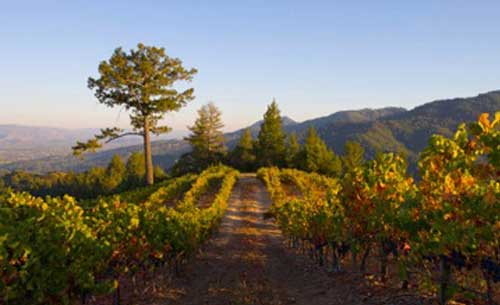
Newton is a sprawling, terraced mountain estate planted to vines at elevations ranging from 500 to 1,600 feet above sea level. Each of the vineyard blocks is planted to a specific Bordeaux variety and each parcel reflects distinct soils, exposures and microclimates. And each of them are meticulously farmed by Phil Coturri to enhance biodiversity, minimize soil erosion, conserve irrigation water, and improve the structure and microbial activity of the soil.
The dominant feature of this site is a single tree that crowns the ridge line. This lone pine, “Pino Solo,” is over 100 feet tall and is visible from across Napa Valley.
CHARLIE SMITH VINEYARD
CABERNET SAUVIGNON
CCOF Certified Organic
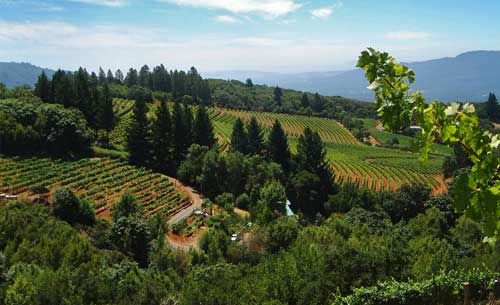
You wouldn’t know it from its name but Charlie Smith Vineyard has one of the most jaw-droppingly beautiful views anywhere in wine country. It sits high above the Sonoma Valley floor at 1,600 feet elevation and stretches across the Mayacamas Mountain range that separates Napa and Sonoma Valleys.
Bordeaux varieties excel here in what’s known as the Moon Mountain District. The vines respond to the intense solar radiation and wind at this elevation by yielding smaller, thicker-skinned grapes that produce intense color and flavor.
Yet another property farmed by Phil Coturri and the folks at Enterprise Vineyards. If you sense a theme here it’s that we insist on the highest standards of farming, wherever we source fruit.
WHAT THESE TERMS MEAN
Sustainably Farmed
Sustainable winegrowing practices are those that conserve water, maintain healthy soil, protect air and water quality, and preserve local ecosystems and wildlife habitat.
Organically Farmed
Grown without synthetic fertilizers, pesticides or other chemicals.
Organically Farmed
California Certified Organic Farmers is a USDA-accredited agency that takes the notion of organic standards to a whole other level, touching on everything from GMOs to carbon sequestration to processing standards to animal welfare and social justice.

